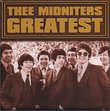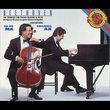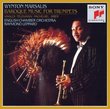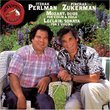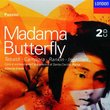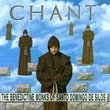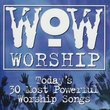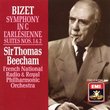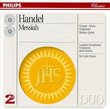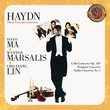| All Artists: Vaughan Williams, Nash Ensemble Title: Vaughan Williams: Violin Sonata; String Quartet No. 2, etc. Members Wishing: 0 Total Copies: 0 Label: Hyperion UK Release Date: 6/11/2002 Album Type: Import Genres: Soundtracks, Classical Styles: Chamber Music, Historical Periods, Classical (c.1770-1830) Number of Discs: 1 SwapaCD Credits: 1 UPC: 034571173139 |
Search - Vaughan Williams, Nash Ensemble :: Vaughan Williams: Violin Sonata; String Quartet No. 2, etc.
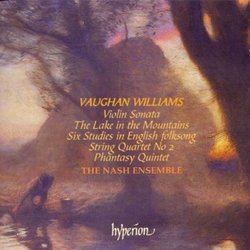 | Vaughan Williams, Nash Ensemble Vaughan Williams: Violin Sonata; String Quartet No. 2, etc. Genres: Soundtracks, Classical |
Larger Image |
CD DetailsSimilar CDs
Similarly Requested CDs |
CD ReviewsIncludes two of Vaughan Williams' chamber works Rodney Gavin Bullock | Winchester, Hampshire Angleterre | 05/14/2004 (5 out of 5 stars) "Vaughan Williams' mature chamber works amount to a handful and they are still neglected compared to his orchestral works. Yet they reflect his output as a whole, ranging from the lyrical 1st string quartet of his early maturity to the more edgy, tense late works like the 2nd string quartet and violin sonata, though even these last two have plenty of VW's unique lyricism to quiet the troubled mind.This Hyperion disc contains five works, all played by members of the Nash Ensemble. The first is a short piano piece, The Lake in the Mountains (1941). This beautiful miniature, containing some delicious harmonies and bell sounds, must have been unexpected from a composer who did not seem to get on with the piano. It reminds me of John Ireland's music in some respects, though there is a strong Gallic influence. The influence of his old teacher, Ravel, is sometimes underestimated.Six Studies in English Folks song (1926) for cello and piano are based on English folk songs. VW always treated these tunes with great respect and preserved their beauty without adding too much of himself. Like Bartok, Vaughan Williams found in national folk song the key to his true individuality.The Phantasy Quintet (1912) is the composer's first truly great chamber work and dates from the time of A London Symphony. The Prelude is one of those movements that brings me out in goose bumps. It is full of those soaring violin lines and modal harmonies which go to make his lyricism. It is a lyricism which connects the listener to the sky and the landscape and not, as with Mahler, to the interior life. Next there is a delightful scherzo, followed by a tender Alla sarabanda, in which the cello is absent and the other instruments are muted. VW has a bit of fun in the final Burlesca. It is based on a clod-hopping little tune, which might be a slow peasant dance. The Violin Sonata (1952) is his last major chamber work and his most neglected one. In three movements, it lasts nearly half an hour. The opening Fantasia is full of nervous energy and virtuosic violin writing. Calm alternates with passages of faster, more disonant music. There is something ironic about the scherzo, like the clown with a grim secret, and it is this which makes it so powerful. The theme of the final movement (Thema con Variazioni) is taken from the piano quintet of fifty years earlier (now available on CD). It a gentle, memorable tune on which VW composes variations. This is a fine work and should be much better known.The Second String Quartet (1943) is arguably his greatest chamber work. A satellite of the great Six Symphony, it has the same turbulence and angst in the 1st and 3rd movements. It was composed for a young violist friend of the composer for her birthday and he gave her a lot of work to do. The Prelude begins on the viola with a grim rhythmic figure which pervades the whole movement. The writing is masterly. The Romance brings emotional relief with a gentle and quiet melody, though tension threatens once more. The viola again instroduces the Scherzo with a harsh descending scalic motto. Like the Prelude, this is worked out with great intensity. The viola is given extra prominence as it is the only unmuted instrument. The short Epilogue is lyrical and valedictory. This quartet is a marvellous piece.The performances and recordings are first rate. Andrew Burn's insert notes are informative." I wasn't a fan of chamber music before this album... Robert Burns | Royal Oak, MI USA | 09/03/2008 (5 out of 5 stars) "Other than Schubert's "Death and the Maiden" and "Trout" quintet, I had practically no chamber music on my shelves before purchasing this album. (Probably I should count the delicious work of Anouar Brahem as chamber music, but I'm not.) I just find it hard to listen to recordings of smaller ensembles and solo intrumental works. Symphonies and tone poems have conditioned me to expect a variety of voices, and chamber music CDs have always sounded sparse to me.
But I'm a big fan of Vaughan Williams, and took a flier on this album (offered through a record club - can I say which one here?). I don't regret it at all! Rodney Bullock's review describes the pieces well enough, so I'll try to add some impressions of the works here that may help a neophyte decides whether he wants to try this album of VW chamber music. Six Studies in English Folk Song is a wonderful collection of miniatures. I'm of the opinion that most folk tunes simply need a sympathetic treatment and a wholehearted performance and they shine. To bolster my case I refer the reader to the work of the Baltimore Consort. VW's work here is gorgeous, and gets great playing from the Nash Ensemble. The Phantasy Quintet is another work of the kind VW does so well: the sunny meadow, meditative and sprightly. Great playing from the Nash Ensemble that makes you want to dance during the Burleasca, and then bask near the end as the work reaches its rapturous conclusion. The Violin Sonata is an enigmatic work. What is it trying to express? I agree with the liner notes that the Theme and Variations at the end carries the emotional weight, but does it resolve the questions of the first two movements? I don't know, and I don't know if that's OK. The Second String Quartet is another enigmatic work, and a great one to enjoy if you like both Vaughan Williams' Fifth and Sixth Symphonies (and you should). The weird "Romance" (the second movement) is long, but doesn't dominate the piece. The final movement is benedictory, mostly. It fits with the whole piece. I have no complaints with the engineering on this CD - all the strings seem full-bodied, and the piano doesn't seem harsh." |

